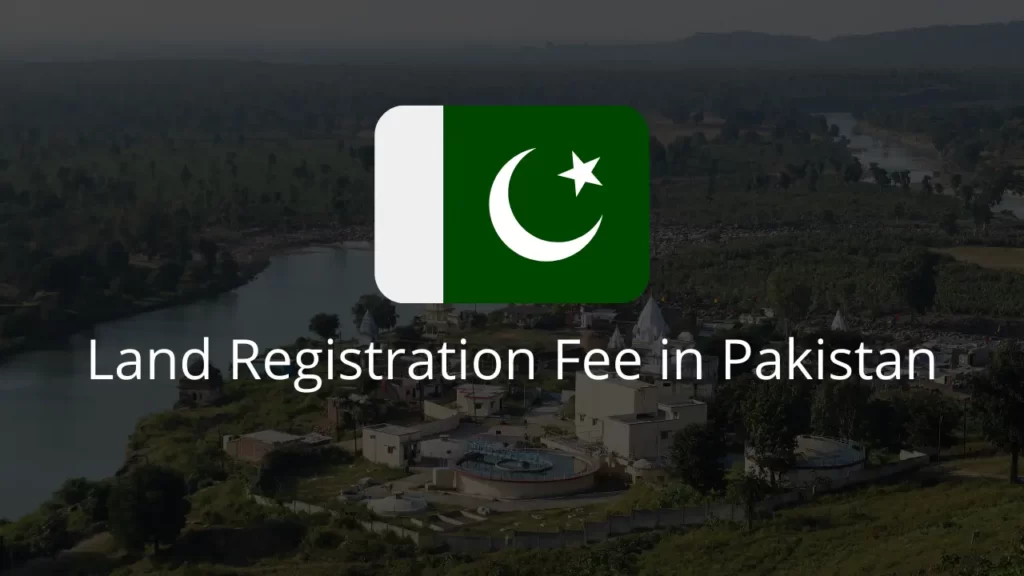Land registration is a crucial process in any real estate transaction in Pakistan. To ensure smooth land ownership transfers and safeguard property rights, it is essential to understand the land registration fee structure in the country. In this article, we will explore the concept of land registration fee in Pakistan, its calculation, and the various factors that impact it.
Overview of Land Registration Fee in Pakistan
Contents
The land registration fee in Pakistan is a mandatory charge that needs to be paid by the buyer during the property transfer process. This fee is levied by the government to cover the administrative costs associated with registering the land, updating the official records, and issuing the ownership documents. It is essential to pay the land registration fee to complete the transaction and obtain legal possession of the property.
Factors Affecting Land Registration Fee
Several factors can affect the land registration fee in Pakistan, including:
- The location of the property
- The type of property (residential, commercial, or agricultural)
- The size of the property
- The value of the property
- The applicable provincial rates
Types of Land Registration Fees
In Pakistan, land registration fees are generally divided into the following categories:
- Stamp Duty: This is a tax levied on the transfer of property and is based on the property’s value.
- Capital Value Tax (CVT): This is a tax imposed on the capital gains made from the transfer of immovable property.
- Registration Fee: This fee covers the administrative expenses of registering the property.
- Town Municipal Administration (TMA) Charges: These are charges imposed by the local municipal authority for providing services related to property registration.
Provincial Differences in Land Registration Fees
Land registration fees vary across the provinces in Pakistan due to differences in provincial rates and regulations. The table below provides a snapshot of these variations:
Last Updated on April 25, 2023. We want to make sure you have the most up-to-date information on prices.
| Province | Stamp Duty | Capital Value Tax | Registration Fee | TMA Charges |
|---|---|---|---|---|
| Punjab | 3% | 2% | 1% | 1% |
| Sindh | 2% | 2% | 1% | 1% |
| Khyber Pakhtunkhwa | 2% | 2% | 1% | 1% |
| Balochistan | 2% | 2% | 1% | 1% |
Find out more about construction materials by visiting our Cement Prices article.
How to Calculate Land Registration Fees
To calculate the land registration fee in Pakistan, follow these steps:
- Determine the property value.
- Multiply the property value by the respective provincial rates for Stamp Duty, Capital Value Tax, Registration Fee, and TMA Charges.
- Add the resulting amounts to obtain the total land registration fee.
For example, if you are purchasing a property worth PKR 10,000,000 in Punjab, the land registration fee would be calculated as follows:- Stamp Duty: PKR 10,000,000 x 3% = PKR 300,000
- Capital Value Tax: PKR 10,000,000 x 2% = PKR 200,000
- Registration Fee: PKR 10,000,000 x 1% = PKR 100,
- 000
- TMA Charges: PKR 10,000,000 x 1% = PKR 100,000
- Total Land Registration Fee: PKR 300,000 + PKR 200,000 + PKR 100,000 + PKR 100,000 = PKR 700,000
Frequently Asked Questions (FAQs)
Conclusion
Understanding the land registration fee in Pakistan is vital for anyone looking to buy property in the country. The fees can vary depending on the location, type, size, and value of the property, as well as the applicable provincial rates. By familiarizing yourself with the factors that affect these fees and learning how to calculate them, you can better prepare for the costs associated with property transactions in Pakistan.



